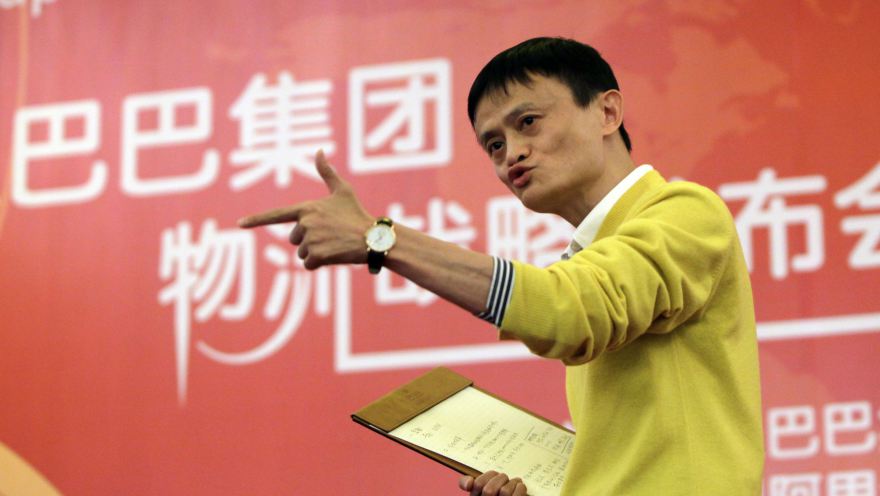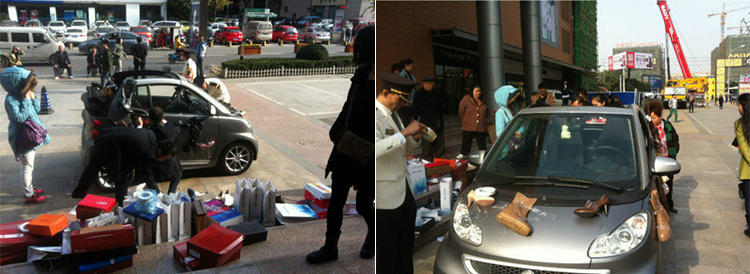by Simon Smith and Will Wu
As this article is being written, young lads deliver boxed items to the That’s PRD office – items all ordered via the Internet, and more often than not off that juggernaut of a website Taobao. With around a third of China’s population currently shopping online, this site is undoubtedly a familiar one to expats working in Chinese offices across the country.
By 2015, it’s been forecast that half of China will shop online. That’s over 675 million people. No surprise, then, that last year, and for the first time ever, China spent more money online than the US, making it the global king of e-commerce.
The reasons behind the Middle Kingdom’s e-commerce boom differ from those in the West. Whereas Western consumers shop online for convenience, Chinese customers are primarily looking to find good value. According to a study from the Multimedia Research Group, 60 percent of Chinese online consumers list better prices as the number-one reason to make purchases online.
On Bachelor’s Day (November 11) alone last year, China’s biggest online shopping company, Alibaba, processed more than US$5.75 billion in its online payments system – a record for a single day anywhere in the world. To put that into perspective, that number is 2.5 times higher than for American retailers last year on so-called Cyber Monday.
Not only do the Chinese increasingly prefer online shopping, but they’re spending more and more each time. In 2012, the average online consumer spent RMB5,203 (US$840). By 2015, the average expenditure per person is estimated to reach US$1,134.
Accessibility to more products is also a major factor in online shopping. For instance, data released by Taobao reveals that consumers from China’s driest province, Xinjiang, a region that is mostly desert, bought the most bikinis online in 2012 – more than those residing in coastal regions. This is largely because of the limited choices of bikinis in local brick-and-mortar stores. People in Xinjiang found the Internet to be a perfect channel to increase their options.
Similarly, consumers in China’s lower-tier regions often find popular international brands do not have retail outlets in department stores in their cities. Online shopping thus becomes the best way for them to access their desired products.
The method of presenting products online in China also varies from the US and Europe. Chinese consumers prefer a much more comprehensive, even overwhelming, web interface, while in Western countries it is believed to be better to keep the site clean and simple.
More specifically, a multi-angle display and informative description of products is extremely important for Chinese online shoppers. Detailed photos and summaries can effectively mitigate their concern about product quality, and thus make the seller appear trustworthy.
Furthermore, Westerners use the homepage of an online store more as brand-building or storytelling space, displaying large banners or a few featured products. The Chinese, on the other hand, tend to utilize all available space to deliver information, including promotions, inventory of all different sections and categories, overviews of collections – as much as can possibly fit.
Amongst the many online shopping sites in operation, three stand out in terms of market share, total sales volume and general public reputation.
Under the management of Alibaba, Taobao Marketplace has fully earned the name “big brother” among China’s e-commerce platforms. In 2012, it achieved US$164.1 billion online sales, accounting for nearly 80 percent of the national total. This figure is also more than Amazon and eBay made combined in the same period.
During Christmas in 2012, Taobao Marketplace was divided into three different platforms, according to its three main customer bases. Taobao (www.taobao.com) is for private shoppers, Tmall (www.tmall.com) is where big brands locate their online shops and Etao (www.etao.com) focuses on providing bargains.
Although not threatening Taobao’s leading position, JD.com is a rising power. Established in 2003, one year later than Taobao Marketplace, JD.com was first a platform for selling computers, communications equipment and consumer electronics. In 2007, it enlarged its business to include more aspects. Currently JD.com covers nearly all the same areas as Taobao, and is particularly proud of its self-owned delivery service, which sends goods to consumers faster than other express companies.
Suning.com ranks third behind Taobao and JD.com and is an offshoot of the Suning Commerce Group, which began a three-year exploration phase in 2005 to discover whether online retail would be profitable. Since deciding to invest in the market, it now covers more or less the same areas as Taobao. However, Suning.com is especially favored for those seeking to buy electronic products, thanks to the highly trusted reputation of its parent company in this area.
Besides these three online shopping giants, there are other emerging sites like Channel.yhd.com (mainly selling snacks), Amazon.cn (books), Vancl.com (clothing) and Vip.com (discounted products from luxury brands).
The rise of e-commerce in China has not been without its problems. Although boasting nearly 500 million registered users and 800 million goods, Taobao in particular has been bit by several scandals. One of the most prominent is the corruption of its ranking system. Illegal agencies are sometimes hired to give fake high rankings to certain shops, which help the shops appear higher in search results.
Another major criticism of the online shopping giant is the ease with which users can be targeted by disgruntled sellers. If a buyer gives a negative review of a particular store, vendors have been known to repeatedly call the buyer until they amend their comments to something more positive. Bad rankings can, after all, ring the death knell for shop owners, and they will spare no effort to avoid them.`
Problems like these have in no way dampened the consumer thirst for such online shopping, however, and the sales figures will only spiral ever higher.
Final numbers aren’t in yet, but Chinese consumers are estimated to have spent US$290 billion at online retail sites in 2013, compared with US$260 billion for their counterparts in the States. Bain, a global consulting firm, forecasts e-commerce in China will total a whopping US$500 billion in 2015.
Strange sells
It is often said that you can get literally anything on Taobao. Here are three of the weirdest items we discovered.
Bricks, RMB10
Annoyed by your courier always delivering your parcel late, talking to you with a sour look on his face and sometimes abusing the booty you have spent whole nights hunting for online? One way to pay him back is to buy bricks on Taobao and choosing to pay on delivery. When the snotty courier shows up exhausted, after having lugged a big bag of bricks up to your apartment, you simply refuse to receive the package, leaving him no choice but to take the weighty box back to the delivery center.
// shop108124147.taobao.com
Silicon belly, RMB368-980
If you’re fed up with having to stand up all the time on the bus or the metro, a silicon belly may be your savior if you are a lady. Attach it to your stomach and you’ll have the appearance of a genuine pregnancy, compelling some kind-hearted sap to give up their seat for you. It’s an investment at RMB368 minimum, but may be worth it if you have a long daily commute.
// beautyform.tmall.com
Air, RMB18
A notable philanthropist and restless self-promoter, Chen Guangbiao has his solution to the worsening air pollution in China: fresh air in a bottle. Sold online since 2012, the condensed air is reputedly collected from Chinese revolutionary base areas like Jinggang Shan and unpolluted regions like Tibet. One container should last a week. Chen says, “Every day I take three big breaths from the bottle before working and I feel energetic all day long. It works better than coffee and tea.” Believe it or not, bottles of Chen Guangbiao Air are almost always out of stock, meaning you’ll have to pre-order and then wait for the next batch to come in.
// wmchina.taobao.com






















0 User Comments